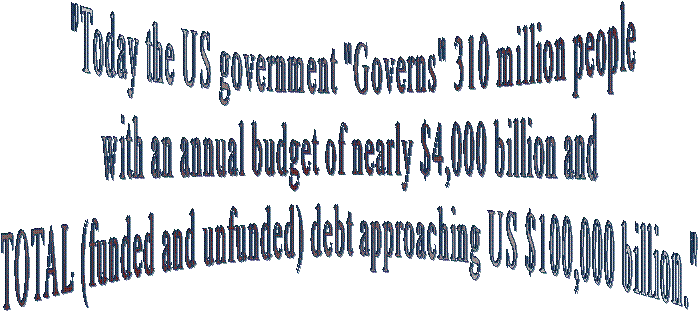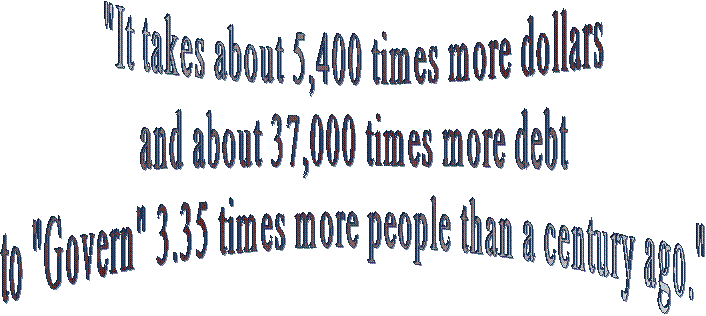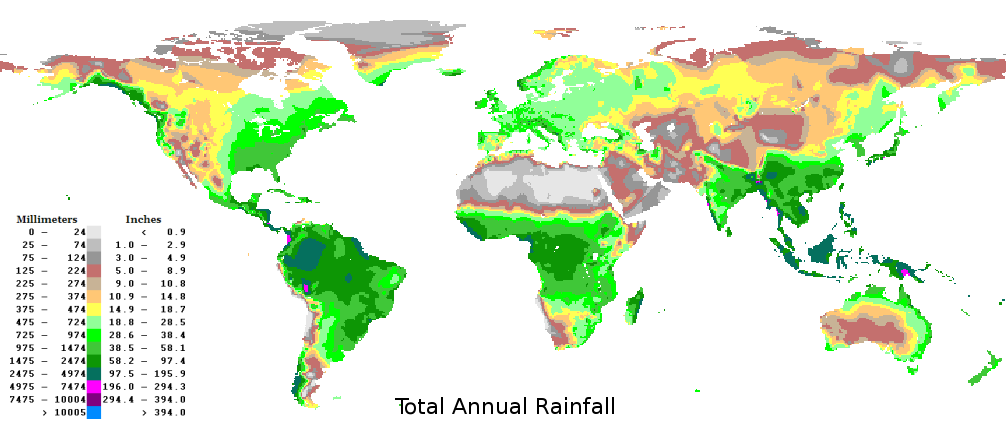To quote "The Privateer" Bill Buckler


- Read more about To quote "The Privateer" Bill Buckler
- Log in or register to post comments


The fact that we are here today to debate raising America’s debt limit is a sign of leadership failure. It is a sign that the U.S. Government can’t pay its own bills. It is a sign that we now depend on ongoing financial assistance from foreign countries to finance our Government’s reckless fiscal policies.
Over the past 5 years, our federal debt has increased by $3.5 trillion to $8.6 trillion.That is “trillion” with a “T.” That is money that we have borrowed from the Social Security trust fund, borrowed from China and Japan, borrowed from American taxpayers. And over the next 5 years, between now and 2011, the President’s budget will increase the debt by almost another $3.5 trillion.
Numbers that large are sometimes hard to understand. Some people may wonder why they matter. Here is why: This year, the Federal Government will spend $220 billion on interest. That is more money to pay interest on our national debt than we’ll spend on Medicaid and the State Children’s Health Insurance Program. That is more money to pay interest on our debt this year than we will spend on education, homeland security, transportation, and veterans benefits combined. It is more money in one year than we are likely to spend to rebuild the devastated gulf coast in a way that honors the best of America.
And the cost of our debt is one of the fastest growing expenses in the Federal budget. This rising debt is a hidden domestic enemy, robbing our cities and States of critical investments in infrastructure like bridges, ports, and levees; robbing our families and our children of critical investments in education and health care reform; robbing our seniors of the retirement and health security they have counted on.
Every dollar we pay in interest is a dollar that is not going to investment in America’s priorities.
Senator Barack Obama
Senate Floor Speech on Public Debt
March 16, 2006
A Ponzi scheme is an investment fraud that involves the payment of purported returns to existing investors from funds contributed by new investors.
Ponzi scheme organizers often solicit new investors by promising to invest funds in opportunities claimed to generate high returns with little or no risk.
In many Ponzi schemes, the fraudsters focus on attracting new money to make promised payments to earlier-stage investors and to use for personal expenses, instead of engaging in any legitimate investment activity.
With little or no legitimate earnings, the schemes require a consistent flow of money from new investors to continue.
Ponzi schemes tend to collapse when it becomes difficult to recruit new investors or when a large number of investors ask to cash out.
And there you have it.
Social Security as explained by the SEC.
We've been bombed with this one over the past two days.
It's everywhere someone is bemoaning inflation/promoting gold or silver/hating the FED and/or the government in general.
Lew Rockwell's blog provides the best commentary ![]() here, or click on the photo.
here, or click on the photo.
If you give it just a little thought, it's revealing in the extreme.
Unfortunately, it ain't those greedy oil companies after all.
Gas would still be the same 20 cents a gallon it was in the 60's were it not for your government having destroyed the value of your money.
Thanks to Steve B. for sending this through, having heard about our go round at our friend Charles G's facebook site.
As always, the photo takes you to the story.
As an aside, clicking on the authors name will take you to a fairly complete list of Jefferson County issues as reported by Mr. Wright.
By
The court-appointed receiver who oversees Jefferson County's sewer system has asked the county for control over the system's $257 million in cash and investments in case the financially troubled county files bankruptcy.
The move would expand the authority of John S. Young, who is pushing for double-digit increases in rates to pay sewer system creditors who are owed $3.2 billion. Currently, Jeff Hager, the county's chief financial officer, controls the flow of the money.
"I am taking signature authority over the revenue funds and the bond funds," Young said. "It makes sure that we keep those funds segregated and allow me to keep using the bond funds for the capital programs. It probably protects the funds and puts the funds in a better position if the county files bankruptcy."
Meanwhile, several Jefferson County commissioners say the county is "moving closer" to bankruptcy as a result of its general fund cash crunch and other fiscal woes.
County officials have projected Alabama's most populous county will run out of general fund money during the first week in August, if replacement revenue is not generated.
What on earth are these guys thinking?
Even if they have it right under the terms of the contract, politically they have to be flaming morons.
As always, click the photo for the entire piece.
The Scranton police union has filed an unfair labor practice complaint against the city for an off-duty drug arrest made by Police Chief Dan Duffy in March.
The complaint, which was filed with the state Labor Relations Board on April 14, takes issue with the chief arresting a man who was allegedly in possession of marijuana because the chief is not a member of the collective bargaining unit and was "off duty" when the March 20 arrest was made.
"I think it's absurd. I'm not going to turn my head on crime that takes place," Chief Duffy said. "I took the same oath (as a police officer) that everyone else took.
"On my day off and I'm driving around as the police chief, and that's wrong?" he asked.
The complaint states that "the work of apprehending and arresting individuals has been the sole and exclusive province of members of the bargaining unit," and that the city did not inform or negotiate with the union that the chief would be "performing bargaining unit work."
Because of this, the union says the city violated the state Labor Relations Act and the Policemen and Firemen Collective Bargaining Act.
This one has been going around for at least a couple of years now.
Still, it's revealing.
I've been saving it just for today.
Harry Reid explains it all.
Taxes are voluntary.
Who knew?
From The Stockholm International Peace Research Institute![]() .
.
As always, click on the graph below for the entire press release which contains links to the paper.
World military expenditure in 2010 is estimated to have been $1630 billion, an increase of 1.3 per cent in real terms.* The region with the largest increase in military spending was South America, with a 5.8 per cent increase, reaching a total of $63.3 billion, according to new data published today by Stockholm International Peace Research Institute (SIPRI)
The United States still exceptional in military spending
Although the rate of increase in US military spending slowed in 2010—to 2.8 per cent compared to an annual average increase of 7.4 per cent between 2001 and 2009, the global increase in 2010 is almost entirely down to the United States, which accounted for $19.6 billion of the $20.6 billion global increase.
‘The USA has increased its military spending by 81 per cent since 2001, and now accounts for 43 per cent of the global total, six times its nearest rival China. At 4.8 per cent of GDP, US military spending in 2010 represents the largest economic burden outside the Middle East’, states Dr Sam Perlo-Freeman, Head of the SIPRI Military Expenditure Project.
Wanna know why some of these countries just flat can't get it together when it comes to creating a democratic society?
Just what the hell is their problem?
Is it culture?
Genetics?
Theology?
What?
The following is the opening paragraph from a paper by Stephen Haber and Victor A. Menaldo titled Rainfall, Human Capital and Democracy.
The map comes from World Climate Maps![]() .
.
The entire 59 page paper which by the way I read (I would not lie ..... about reading) can be accessed here![]() .
.
You have to fool around joining up and stuff, but it's free and seemingly spam free.
Why are some societies characterized by enduring democracy while other societies are persistently autocratic?
We show that there is a systematic, non-linear relationship between rainfall levels and regime types in the post-World War II world:
stable democracies overwhelmingly cluster in a band of moderate rainfall (550 to 1300 mm of precipitation per year); persistent autocracies overwhelmingly cluster in deserts and semi-arid environments (0 to 550 mm per year) and in the tropics (above 1300 mm per year).

We also show that rainfall does not work on regime types directly, but does so through the its impact on the level and distribution of human capital. Specifically, crops that are both easily storable and exhibit modest economies of scale in production grow well under moderate amounts of rainfall.
The modal production unit is a family farm that can accumulate surpluses. In such an economy there are incentives to make intergenerational investments in human capital. A high level and broad distribution of human capital makes democratic consolidation more likely.
Here are some excerpts from the paper.
Briefly stated, the world’s liberal democracies are situated in climate zones where the level of rainfall permitted the advent of an agricultural system based on grains and legumes, which are characterized both by a high degree of storability and modest economies of scale in production.
Conversely, high storability and small minimum efficient scales of production do not characterize the crops that can be grown in other climate zones. In deserts, it is not possible to grow anything, except under special circumstances that dramatically raise the scale of production—a subject to which we shall return at some length.
It is, of course, possible to grow food in the tropics—but what can be grown either has very low degrees of storability (e.g. tree crops, such as bananas) or is characterized by extremely large scale economies in production (e.g. sugar cane).
Those specific features of grains and legumes created conditions that favored societies composed of family farmers, as opposed to societies composed of nomadic Bedouins or coerced plantation workers.
High storability and small minimum efficient scales of production generated surpluses that could not be arrogated by political elites bent on political centralization. This structure of agricultural production therefore created incentives for economic specialization, trade, and inter-generational investments in human capital.
Indeed, the first democracies—both in antiquity and in the modern era—were not only located in this band of moderate rainfall, but they emerged out of societies composed of citizens who not only had attained high average levels of education but who were relatively equally matched in terms of their educational endowment and sophistication.
Colonial New England is, of course, the archetype: a society of highly literate, family farmers.
What was true about New England was also true, however, about Ancient Athens, 17th Century Holland, 18th Century England, and 19th Century Canada.
Thanks to everyone who sent this story through, especially to Don D. who had the source, ![]() Trim Tabs Investment Research, which impressed us around here to no end.
Trim Tabs Investment Research, which impressed us around here to no end.
As always, click on the photo.
Welfare State: Handouts Make Up One-Third of U.S. Wages
By: John Melloy Executive Producer, Fast Money

Government payouts—including Social Security,Medicare and unemployment insurance—make up more than a third of total wages and salaries of the U.S. population, a record figure that will only increase if action isn’t taken before the majority of Baby Boomers enter retirement.
So anyway, the above story reminded me about a Joni Mitchell interview Mary? had sent in a while back that I had been unable to find a place for.
It takes a couple minutes to get to the tie in, but she tells a good story, is still pretty easy to look at, and has a surprising take on the condition of American society.
Hang in there for it.
As an aside, Charlie Rose![]() consistently does outstanding interviews with people from everywhere.
consistently does outstanding interviews with people from everywhere.